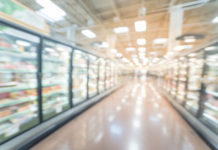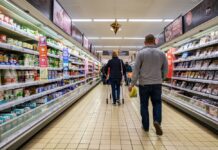
By Tim Chiu, Senior Vice President of TradeBeyond
Sustainability has become a core priority in the food and beverage industry, driven by consumer demand for transparency and tightening global regulations. Consumers want to know where their food comes from and are concerned about the environmental and social impact of their purchases. This heightened focus on ethical sourcing, environmental responsibility, and social welfare has created a new business imperative. To meet evolving consumer expectations and comply with complex new laws, food and beverage companies are turning to advanced traceability technologies to ensure transparency, reduce risks, and achieve their Environmental, Social, and Governance (ESG) goals.
The food and beverage sector faces unique challenges when it comes to sustainability. From deforestation linked to commodities such as palm oil and cocoa to the exploitation of labor in agricultural supply chains, the risks are numerous and often buried deep within complex networks of suppliers. Governments are making it clear that it’s no longer acceptable for businesses to claim ignorance about social and environmental abuses. Regulations like the European Union’s Corporate Sustainability Due Diligence Directive (CSDDD) and Canada’s Bill S-211 require companies to document their supply chains comprehensively to ensure that their products are free from forced labor and other injustices.
Non-compliance can lead to hefty fines, reputational damage, and lost consumer trust. Recent research shows that around two‐thirds of consumers now consider environmental factors or sustainability when deciding what to buy, aligning with surveys from IBM, Deloitte, and others. Companies that fail to address these concerns risk losing market share to competitors that can provide verifiable proof of their ethical sourcing practices.
In light of these trends, traceability is no longer a “nice-to-have” feature for brands and retailers, but a core pillar of consumer trust. By enabling real-time visibility from farm to fork, traceability technologies help food and beverage companies monitor every step of their supply chain. For example, multi-enterprise platforms allow businesses to trace raw materials like cocoa and palm oil, ensuring they meet both sustainability standards and comply with new regulations such as the FDA’s Food Traceability Final Rule. Palm oil in particular has come under scrutiny, given its association with deforestation, habitat loss for endangered species, and significant carbon emissions. Advanced traceability tools help companies verify that the palm oil they source is produced responsibly, reducing environmental harm and increasing supply chain accountability.
The growing role of AI
Increasingly, AI-driven traceability solutions are proving invaluable in this landscape. These tools can detect anomalies in supply chains — such as sudden shifts in labor costs or unusual supplier turnover rates — that may indicate exploitative practices. They also automate the verification of supplier certifications, reducing the risk of fraud and ensuring compliance with evolving standards like the U.S. Food and Drug Administration’s Food Traceability Final Rule, which will soon require detailed record-keeping for high-risk foods. AI-powered chain of custody tools provide an additional layer of security, tracking every step of a product’s journey across multiple tiers and offering companies irrefutable proof of compliance with sustainability and labor regulations.
AI isn’t just helping companies mitigate risks; it’s also playing a key role in optimizing operations. Predictive analytics can anticipate supply chain disruptions and help companies make smarter sourcing decisions in real time. For instance, by analyzing weather patterns and geopolitical events, AI can predict risks to agricultural supply chains and suggest alternative sourcing strategies, helping companies avoid costly interruptions. AI helps reduce food waste by improving inventory planning and optimizing cold-chain logistics, ensuring that perishable products reach consumers before spoilage.
Reducing Scope 3 carbon emissions is another critical area where advanced traceability and multi-enterprise platforms are making an impact. A multi-enterprise platform can serve as central repositories for emissions data, capturing key metrics on carbon output from coal, diesel, and natural gas usage across supply chains. By automating data collection and integrating improvement plans, companies can track supplier progress, continuously evaluate performance, and ensure corrective actions are taken. Real-time dashboards provide granular insights into environmental footprints and visualize where improvements are needed. This transparency fosters accountability and deeper collaboration between brands and suppliers, motivating long-term partnerships and encouraging shared responsibility in achieving emission reduction goals.
The benefits of adopting traceability solutions extend beyond compliance and risk management. Companies that embrace these technologies can gain a competitive edge, strengthening their brand reputation and fostering consumer trust. As regulations become more stringent and consumer expectations rise, businesses that invest in advanced digital tools will be better positioned to navigate the complexities of global supply chains and build more resilient operations.
For the food and beverage industry, the stakes couldn’t be higher. Recent global supply chain disruptions, such as those triggered by the COVID-19 pandemic and geopolitical conflicts, have underscored the fragility of supply networks. Any delay in the supply chain can have catastrophic consequences for perishable goods, leading to on-shelf shortages, increased returns, and shrinking margins. Comprehensive traceability not only helps companies respond swiftly to potential crises but also positions them to capitalize on new opportunities by meeting the rising demand for sustainable products.
The future of the food and beverage industry is being shaped by those companies willing to invest in transparency and traceability. As new regulations come into force and consumers grow ever more discerning, the ability to demonstrate a commitment to sustainability will define the winners and losers in this competitive landscape. By adopting advanced traceability tools and leveraging AI, food and beverage companies can safeguard their supply chains, meet their ESG goals, and build lasting trust with their customers.
Tim Chiu is the Senior Vice President of TradeBeyond. He has more than 25 years of experience in supporting global sourcing automation and information technology that enables collaboration between global commerce communities. You can contact him at [email protected].






